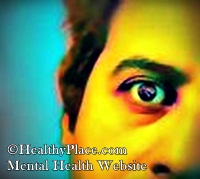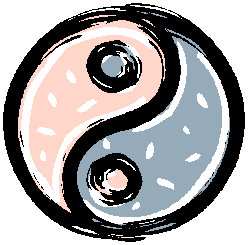Non-Medication Treatments for Anxiety and Panic

Covers cognitive behavioral therapy, relaxation techniques, and natural treatments for treating anxiety and panic attacks.
Who hasn't felt it? Anxiety, that unremitting voice in your head warning that something is wrong—or will be wrong very soon. A voice that sets your nervous system aflutter.
The thoughts evoking such unease can be specific, from concerns over avian flu to rodents or finances, but the feeling commonly gets disconnected from the trigger and spirals away into a universe of its own making. When this happens you whirl into worry after worry after worry. For some, such anxiety comes and goes. But for others, this pernicious condition can cast a shadow over day-to-day activities, well being and, yes, even health. That's when anxiety becomes a "disorder."
There is no one-size-fits-all definition of anxiety disorder. However, all types of anxiety do appear to have a strong genetic component, exacerbated by life events, trauma and stress. Those with anxiety most likely suffer from several different manifestations and are also at increased risk of depression.
The different manifestations run the gamut from a generalized anxiety disorder (GAD, characterized by relentless, often unspecified worry) to social anxiety disorder (excessive self-consciousness and fear of social situations), phobias (an intense fear of something that, in fact, poses no danger), post-traumatic stress disorder (PTSD, debilitating fear that arises after a terrifying event), obsessive-compulsive disorder (OCD, recurring, persistent thoughts, images and impulses that manifest in repetitive behaviors) and panic disorder (sudden overwhelming feelings of terror, accompanied by intense physical symptoms).
If you suffer from any of these or know someone who does, take heart. A variety of techniques, some simple and others more involved, can bring a greater sense of peace to your life.
It also may help to know you're not alone. Statistics from the National Institute of Mental Health (NIMH) show some 19 million Americans suffer from anxiety disorders right along with you, making it the most prevalent psychiatric complaint, according to psychotherapist Jerilyn Ross, president of the Anxiety Disorders Association of America and director of The Ross Center for Anxiety and Related Disorders in Washington. Yet only a third of those who suffer seek treatment, she says. She adds that of the millions who wrestle with anxiety disorders, women outnumber men two-to-one, and 10 percent of sufferers are children.
When is worry worrisome?
 How do you know you have an anxiety disorder? Give yourself six months. If, after this amount of time, you still regularly wrestle with such symptoms as excessive worry, undue panic, negative thinking or endless obsessing over the "what ifs" of life, or their possible dire outcomes, chances are you have an anxiety disorder. It doesn't much matter what you worry about. It could be a specific problem, or it could just be an amorphous feeling—what you might call the free-floating variety. All this stress wreaks havoc by catapulting you into the fight-or-flight response—the kind of automatic body reaction that occurs when you step off a curb and narrowly miss being hit by a bus. Your autonomic nervous system goes on high alert, and adrenaline and other stress hormones kick in. Immediately your heart rate soars, your breathing becomes shallow, you begin to sweat and your muscles tighten. Over time, these high-stress responses will wear out your body, not to mention your mind.
How do you know you have an anxiety disorder? Give yourself six months. If, after this amount of time, you still regularly wrestle with such symptoms as excessive worry, undue panic, negative thinking or endless obsessing over the "what ifs" of life, or their possible dire outcomes, chances are you have an anxiety disorder. It doesn't much matter what you worry about. It could be a specific problem, or it could just be an amorphous feeling—what you might call the free-floating variety. All this stress wreaks havoc by catapulting you into the fight-or-flight response—the kind of automatic body reaction that occurs when you step off a curb and narrowly miss being hit by a bus. Your autonomic nervous system goes on high alert, and adrenaline and other stress hormones kick in. Immediately your heart rate soars, your breathing becomes shallow, you begin to sweat and your muscles tighten. Over time, these high-stress responses will wear out your body, not to mention your mind.
This state of preparedness is perfectly appropriate when you're reacting to the oncoming bus because it increases your chances of survival. But when the trigger is an everyday event like seeing a spider in the bathtub, riding an elevator or simply leaving the house, then you have a problem. In this day and age, those prone to anxiety are more likely misinterpreting environmental and internal cues by misperceiving them as life threatening when, in actuality, they are not.
One reason anxiety disorder is so well understood is because new brain imaging technology and neurochemical tracing techniques now exist. Researchers can pinpoint particular areas in the brain and certain neurotransmitters involved in different anxiety manifestations. Daniel G. Amen, MD, author of Healing Anxiety and Depression (New York, 2003), has studied the brain patterns for different types of anxiety using SPECT (single photon emission computed tomography) scans. While symptoms only suggest a certain type of anxiety, the scans map, by color, where the brain is inappropriately responding to environmental and internal cues.
"This technology is like looking under the hood of the car," says Amen. Using it in his own medical practice, he has discovered that five parts of the brain are involved with anxiety and depressive disorders.
"We've found that anxiety is not one thing but a bunch of things. Therefore, there is no one fix for each person," Amen adds.
In his research, Amen has traced some people's anxieties to an unfocused brain that is under-functioning in some areas so it can't efficiently process information; some to an overactive brain that can't stop thinking; others to an overly focused brain that fixates on unpleasant thoughts; and still others to injury to the frontal lobe.
Treating Anxiety and Panic
The upside is that such research has led to more specific treatments tailored to different types of anxiety. And experts say anxiety is highly responsive to specific remedies and coping techniques. "Anxiety is actually the most treatable of all mental health complaints," says David Carbonell, a psychologist specializing in anxiety and director of The Anxiety Treatment Centers in the Chicago area and Suffolk County, N.Y.
Amen suggests a multifaceted treatment adjusted to the particular flavor of anxiety disorder a person has. His recommendations include a mix of cognitive behavioral therapy, biofeedback (which provides concrete feedback of physiological reactions—heart rate, muscle tension and brainwave patterns) and physical exercise to increase blood flow to the brain. Other effective therapies, according to Amen, include deep breathing and relaxation techniques, dietary shifts (such as avoiding caffeine, refined carbohydrates and toxins like nicotine and recreational drugs) and taking supplements known to mediate mood disorders (omega-3 fatty acids, for example). He also uses medication when necessary, either short term to get symptoms under control or long term if associated with depression.
Interestingly, what doesn't help much is traditional talk therapy—discussing childhood and life history to understand and, hopefully, eradicate the dysfunction. Carbonell says the reasons behind why you feel anxious are not as important as discovering what factors evoke the anxiety in the present moment. "It's a given that certain people are predisposed to anxiety," he says, "but the more critical questions to answer are how does the anxiety begin and what keeps it going?" Then the next step is to change these anxiety-producing thoughts and behaviors.
Easing the agitation
Cognitive behavioral therapy (CBT) appears to quell anxiety of all kinds. Approximately 12 sessions long, this pragmatic method helps reset your mental and physiological reactions to anxiety. CBT is particularly good at alleviating panic disorder, "one of the most disabling" disorders of all, Carbonell says. Panic attacks can occur during waking hours or even while you're sleeping, causing the whole body (and mind) to be paralyzed with fear—anxiety times 10. At the time of attack, the heart rate soars and the brain races, trying to make sense of what's happening, and you can't get a grip on the world around you. You feel like you're losing control, which in a way you are, and maybe even like you're spiraling toward death (which you really aren't). The overriding interpretation of these reactions is "I am about to experience a catastrophe," Carbonell explains. But, the catastrophe is, in fact, the symptoms, not any actual cataclysmic event.
After the first panic attack, chances are your focus shifts to fear—when will the next one come? Should I simply avoid whatever place or situation set off the initial attack? Unfortunately, this scenario can lead to the birth of new aversions and phobias. If you're not careful, existence becomes constricted to whatever is deemed "safe," and the panorama of life becomes extremely limited.
"Anxiety is a self-protective disorder," Carbonell explains. All the behaviors to which it gives rise are about protecting oneself from perceived threats—be it an insect, flying 30,000 feet above land or contact with germs.
What a person learns through CBT is that the instinctive reaction of avoidance doesn't work because running away inflames the sense of panic. So it's like putting out fire with gasoline. Instead of avoidance, a person needs to face the perceived threat. For example, instead of distracting yourself from fearful thoughts and pretending they don't exist, say them out loud. Carbonell tells a story about a woman who came in to his office after a panic attack sure that she was going to die. Rather than have her deny the thought, he advised her to say 25 times, "I am going to die." By the 11th repetition, he says, she realized the fallacy of her thinking and was even able to laugh about it.
Thus, this cognitive aspect of CBT treatment starts with disengaging from the negative "self-talk"—that little voice in your head warning of impending calamity. If you don't, "anxiety becomes fear of the fear itself," the Anxiety Disorders Association's Ross says. So CBT encourages patients not to deny their reactions but rather to accept them, to realize they are simply sensations rather than symptoms of looming danger. "The point is to change or modify the thoughts that are keeping you stuck," Ross says. "I suggest that people keep a journal to become aware of what might be causing anxiety to flare," she adds. This practice will help demystify the anxiety and provide some control over what brings it on, so you can be better prepared to cope.
The behavioral piece of CBT allows you to look at what makes you anxious, confront your fear and then gradually work to desensitize yourself. This way you learn to neutralize the experience and not react. It allows "the anxiety to lose its punch," Ross says.
This approach is used to treat fear of flying, among other phobias. Carbonell, for example, accompanies patients on a flight and mediates the rising anxiety as it occurs—it usually reaches an apex when the door is locked for takeoff. A CBT professional on board can help deconstruct the fear and provide relaxation techniques to diminish the chronic reactions.
Behavioral changes also come into play in more everyday situations. "Again, treatment is paradoxical," Carbonell says. "I tell patients whatever you think you should do, do the opposite." So when the body starts to react to an anxiety-producing situation, the best response is to do the opposite of what would be appropriate in a truly dangerous situation. In short, be still and relax. "When that discomfort comes, you need to chill out," he says.
This is why relaxation techniques—for use in the moment and as a regular practice—are essential for the anxiety prone. Carbonell tells patients to practice deep, diaphragmatic breathing when anxiety begins to bubble to the surface. This is because one of the first fear reactions is to start breathing fast and shallow, to gulp air or even hold your breath. It is exactly that kind of breathing that brings on light-headedness and dizziness, frightening symptoms in and of themselves, and contributes to the snowballing of anxiety. (See sidebar for deep-breathing techniques.) Yoga, meditation and biofeedback can also ease anxiety, while giving you the tools you need to learn how to control and ease the symptoms of distress.
Another option is Hemi-Sync, a method developed nearly 25 years ago. This technique involves playing different tones into each ear that the brain then processes in such a way that it can move into a more relaxed and focused state. This can be particularly useful in countermanding anxious states, according to Brian Dailey, MD, an emergency room physician in Rochester, N.Y., who provides Hemi-Sync CDs (with head phones) for nervous patients.
Hemi-Sync works to evoke calmer brain waves. Listeners can use the audiotapes and CDs as "training wheels," Dailey says, to learn how to reach that state on their own.
Another critical piece for controlling anxiety is stress reduction. Although stress itself does not cause anxiety, it can exacerbate the symptoms. "I advise my clients to practice stress hygiene," Ross says. "It's important to do what you can to keep stress under control, and that means getting sufficient sleep and exercise and eating a healthful diet." Caffeine can bring on anxiety, particularly panic attacks, and so can numbing analgesics used by dentists, which contain norepinephrine, another possible trigger. Additionally, experts advise anxiety sufferers to eat foods that keep blood sugar steady, since the symptoms of low blood sugar can mimic those of anxious states. So it's best to avoid refined sugars and simple carbohydrates, which send blood sugar on a roller-coaster ride, and make protein a part of each meal.
Natural Treatments for Anxiety Disorders
Also consider supplements. A multivitamin and mineral supplement can ensure that all nutrient bases are covered, since few people—anxious or not—get the full array of food groups each day. In addition, deficiencies in vitamins B and C can result from chronic stress, so some healthcare practitioners recommend supplementation to boost reserves and support immune function. Studies have shown that omega-3 fatty acid supplements are effective in mediating bipolar disorder and perhaps have a similar effect on other mood disorders.
Herbs can help, too. Research shows that valerian (Valeriana officinalis) is an effective palliative for anxiety. Look for a product standardized to 1 percent valerenic acid (the active ingredient), and use one teaspoon of the tincture or one to two tablets at bedtime.
Flower essences are also worth a try. For example, Rescue Remedy by Bach and Five-Flower Formula by Healingherbs Ltd. work for short-term relief in the full flush of fear or anxiety. Aspen (Populus tremula) can treat fear and worries of unknown origin, inexplicable anxiety or a sense of foreboding. Mimulus (Mimulus guttatus) is used for fear of known things such as illness, death and accidents. You can also combine various flower remedies if necessary; but generally no more than seven.
Lastly, not all anxiety is bad. "There's toxic anxiety that interferes with quality of life, but there's also sacred anxiety, which makes us consider our place in the universe. This latter is something we need to work through to get to a place of serenity. It's sort of part and parcel of being human," says Robert Gerzon, a psychologist and author of Finding Serenity in the Age of Anxiety (Bantam, 1998). Anxiety, he says, is a teacher, and it often precedes a period of growth or change. "Society teaches us either to deny anxiety or succumb to it and worry ourselves to death," he says. But there is another way.
Gerzon says the first step is diminishing the toxic fears—those that have no discernible reason for being or are intense, long lasting and take a toll on happiness. Then he advises reframing how you think of the unavoidable residual anxiety. Gerzon suggests viewing it as excitement—the body interprets anxiety and excitement similarly anyway—which is a more positive interpretation of anxious sensations.
But when toxic overload prevails, don't suffer in isolation. "If you find yourself worrying excessively, and if it interferes with your life and relationships with friends and family," Ross says, "don't be ashamed. Reach out and get yourself some help. If one treatment doesn't work, don't give up." Keep tweaking the remedies and coping techniques until you discover the mix that works best.
What to do when you feel a panic attack coming on
The best defense against recurring anxiety is to faithfully practice relaxation techniques, like those mentioned here. This way, in the heat of the moment, you can shift into the well-traveled routine of slowing your breathing, un-tensing your muscles and quieting your mind.
- Calm your mind. Take a deep breath to a count of 10, at the same time consciously creating the sensation that your breath is being pulled up from the earth through your feet to the top of your head. Then exhale just as slowly,
this time feeling your breath whoosh out of you through your fingertips and toes. If you can't make it to 10, don't worry, just take slow, deep inhalations and equally slow exhalations. With each breath, visualize that you are an ocean wave, coming in, going out. You can also add affirmations to the visuals—"I take in love," "I let go stress." Such exercises will help release you from the story line doing its monologue in your mind. When the words start up again, just refocus on your body's sensations. - Relax your muscles. When anxiety encroaches, muscles tense and eventually physical symptoms flare, such as neck and back pain, headaches and even tingles in the hands and feet. A useful technique for relaxing those anxious muscles is to lie still, then progressively tense and release them toe to head. This cues the body into the sensation of relaxation and mitigates the side effects of psychological distress.
- Exercise. Exercise is great for working off excessive energy. It can also decrease stress levels. Yoga is a particularly beneficial form of exercise. Even though doing yoga can give you the deep relaxation you need, sometimes the anxiety you feel prevents you from lying still. So start with an energizing practice, concentrating on standing and balancing poses (to get out of your head and into your body), then follow that up with quiet, restorative poses, meditation or deep-breathing exercises.
- Engage in relaxing diversions. Take a walk, listen to music, take a hot bath, love up your pet—any of these will calm jangled nerves and help you regain a sense of being grounded on the planet.
- Meditate. Mindful meditation brings profound calm, especially welcome to those suffering with anxiety. Meditation is simply sitting or lying still and letting your mind empty. However, for most this is easier said than done. You may even find you feel too agitated to sit still. Do something active first and then try sitting. For detailed techniques, read Calming Your Anxious Mind by Jeffrey Brantley (New Harbinger Publications, 2003).
Source: Alternative Medicine
APA Reference
Staff, H.
(2008, October 18). Non-Medication Treatments for Anxiety and Panic, HealthyPlace. Retrieved
on 2026, January 15 from https://www.healthyplace.com/alternative-mental-health/anxiety-alternative/non-medication-treatments-for-anxiety-and-panic

 All animals, including humans, respond to threat by fighting or fleeing. While deciding what to do, your body gears itself up to respond. Extra stress hormones (adrenaline, noradrenaline, and cortisol) are secreted, your heart pumps faster, blood pressure rises, breathing quickens, perspiration increases, and digestion slows. Taking physical action exhausts the stress hormones. But when stuck behind a desk or in a car, with one tense situation after another, stress chemicals remain in the bloodstream. This causes headaches, creating further anxiety. Eventually your system is so overloaded that a minor incident can prompt a crisis.
All animals, including humans, respond to threat by fighting or fleeing. While deciding what to do, your body gears itself up to respond. Extra stress hormones (adrenaline, noradrenaline, and cortisol) are secreted, your heart pumps faster, blood pressure rises, breathing quickens, perspiration increases, and digestion slows. Taking physical action exhausts the stress hormones. But when stuck behind a desk or in a car, with one tense situation after another, stress chemicals remain in the bloodstream. This causes headaches, creating further anxiety. Eventually your system is so overloaded that a minor incident can prompt a crisis. Probably the most common questions asked about anxiety disorders medication on online forums are about side-effects of anxiety medications. People ask about side-effects before starting medication for anxiety because they want to choose medications that cause the least side-effects. People taking anxiety medication and experiencing side-effects want to know if anyone else has experienced the same.
Probably the most common questions asked about anxiety disorders medication on online forums are about side-effects of anxiety medications. People ask about side-effects before starting medication for anxiety because they want to choose medications that cause the least side-effects. People taking anxiety medication and experiencing side-effects want to know if anyone else has experienced the same. A man found a cocoon of a butterfly. One day a small opening appeared and he sat and watched the butterfly for several hours as it struggled to force its body through that little hole. Then it seemed to stop making any progress. It appeared as if it had gotten as far as it could and it could go no further. So the man decided to help the butterfly by taking a pair of scissors and snipping off the remaining bit of the cocoon. The butterfly then emerged easily, but it had a swollen body and small, shriveled wings. The man continued to watch the butterfly because he expected that, at any moment, the wings would enlarge and expand to be able to support the body, which would contract in time. Neither happened! In fact, the butterfly spent the rest of its life crawling around with a swollen body and shriveled wings. It never was able to fly.
A man found a cocoon of a butterfly. One day a small opening appeared and he sat and watched the butterfly for several hours as it struggled to force its body through that little hole. Then it seemed to stop making any progress. It appeared as if it had gotten as far as it could and it could go no further. So the man decided to help the butterfly by taking a pair of scissors and snipping off the remaining bit of the cocoon. The butterfly then emerged easily, but it had a swollen body and small, shriveled wings. The man continued to watch the butterfly because he expected that, at any moment, the wings would enlarge and expand to be able to support the body, which would contract in time. Neither happened! In fact, the butterfly spent the rest of its life crawling around with a swollen body and shriveled wings. It never was able to fly. The treatment of adolescent or juvenile patients with bipolar disorder is modeled after treatments provided to adult patients, since no good controlled studies of bipolar treatment modalities in this age group are available to provide evidence-based medical care. Nonetheless, bipolar disorders in adolescents and children often present to clinicians at times of family or youth despair or family crises surrounding the youth's behaviors. In such critical times, inpatient care often is indicated to assess the patient, diagnose the condition, and ensure the safety of the patient or others. Hospitalization is necessary for most patients in whom psychotic features are present and in almost all patients in whom suicidal or homicidal ideations or plans are present. Inpatient care always should be considered for young persons who have suicidal or homicidal ideation and have access to firearms in their homes or communities and for those who abuse substances, particularly alcohol.
The treatment of adolescent or juvenile patients with bipolar disorder is modeled after treatments provided to adult patients, since no good controlled studies of bipolar treatment modalities in this age group are available to provide evidence-based medical care. Nonetheless, bipolar disorders in adolescents and children often present to clinicians at times of family or youth despair or family crises surrounding the youth's behaviors. In such critical times, inpatient care often is indicated to assess the patient, diagnose the condition, and ensure the safety of the patient or others. Hospitalization is necessary for most patients in whom psychotic features are present and in almost all patients in whom suicidal or homicidal ideations or plans are present. Inpatient care always should be considered for young persons who have suicidal or homicidal ideation and have access to firearms in their homes or communities and for those who abuse substances, particularly alcohol.